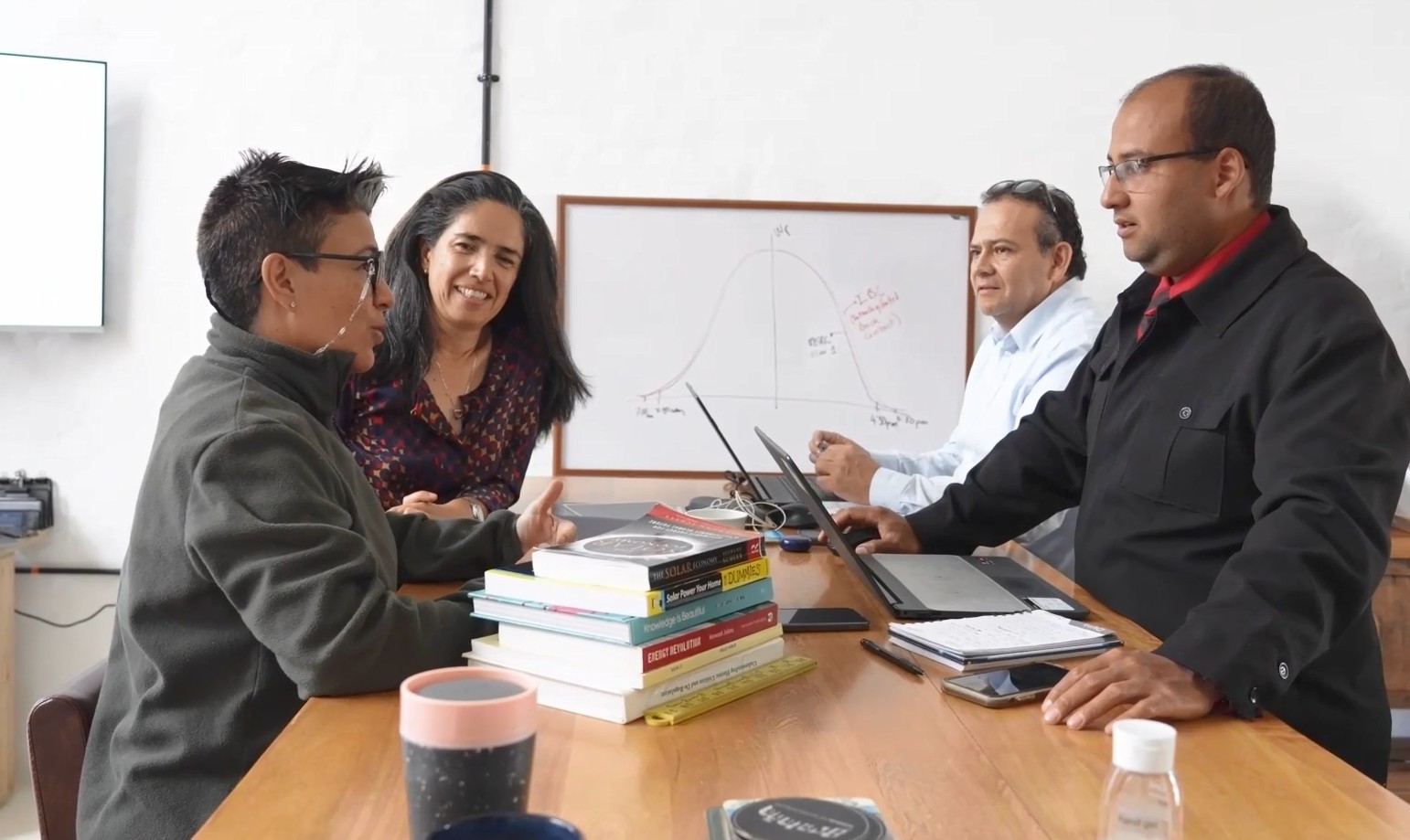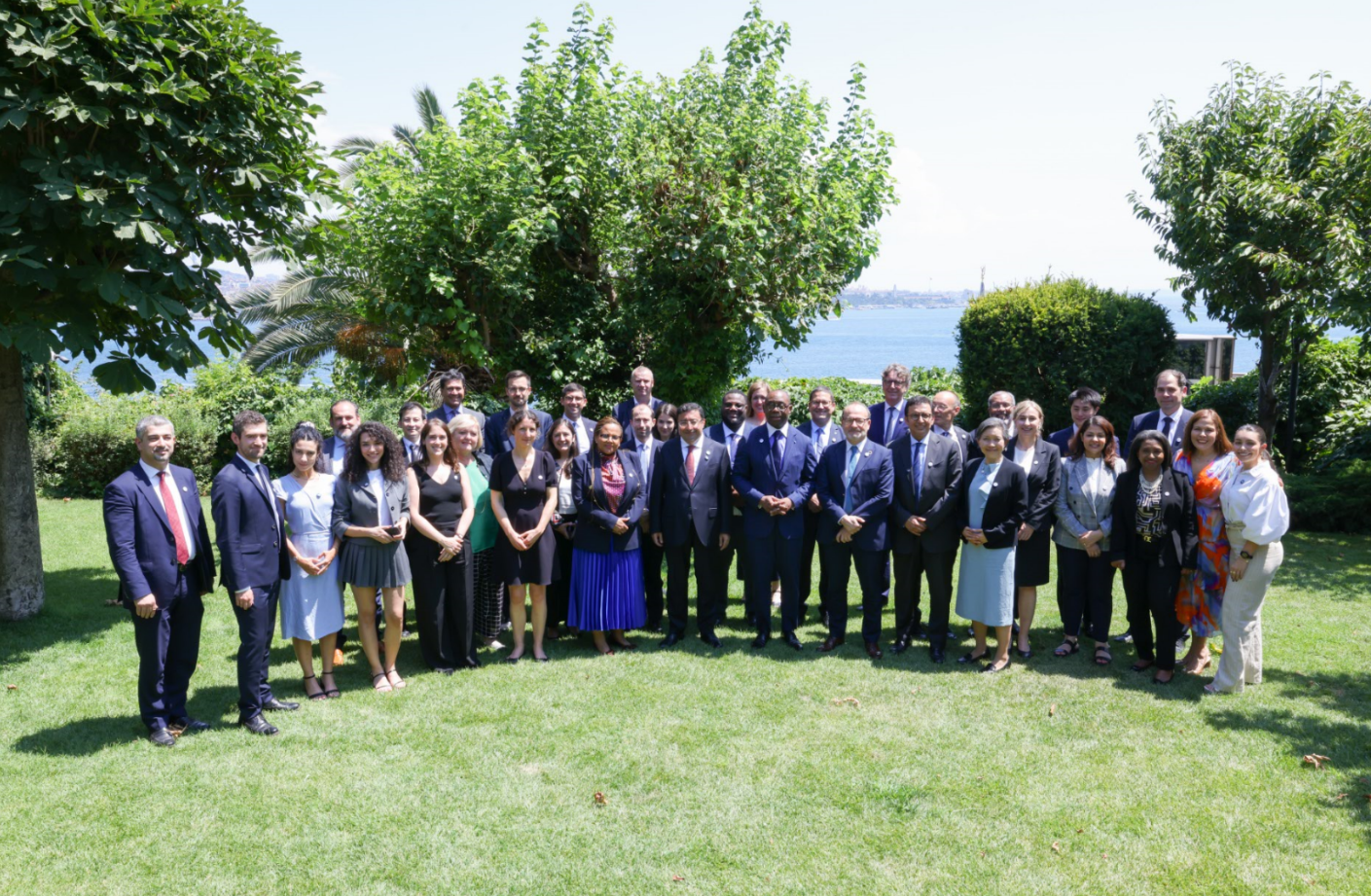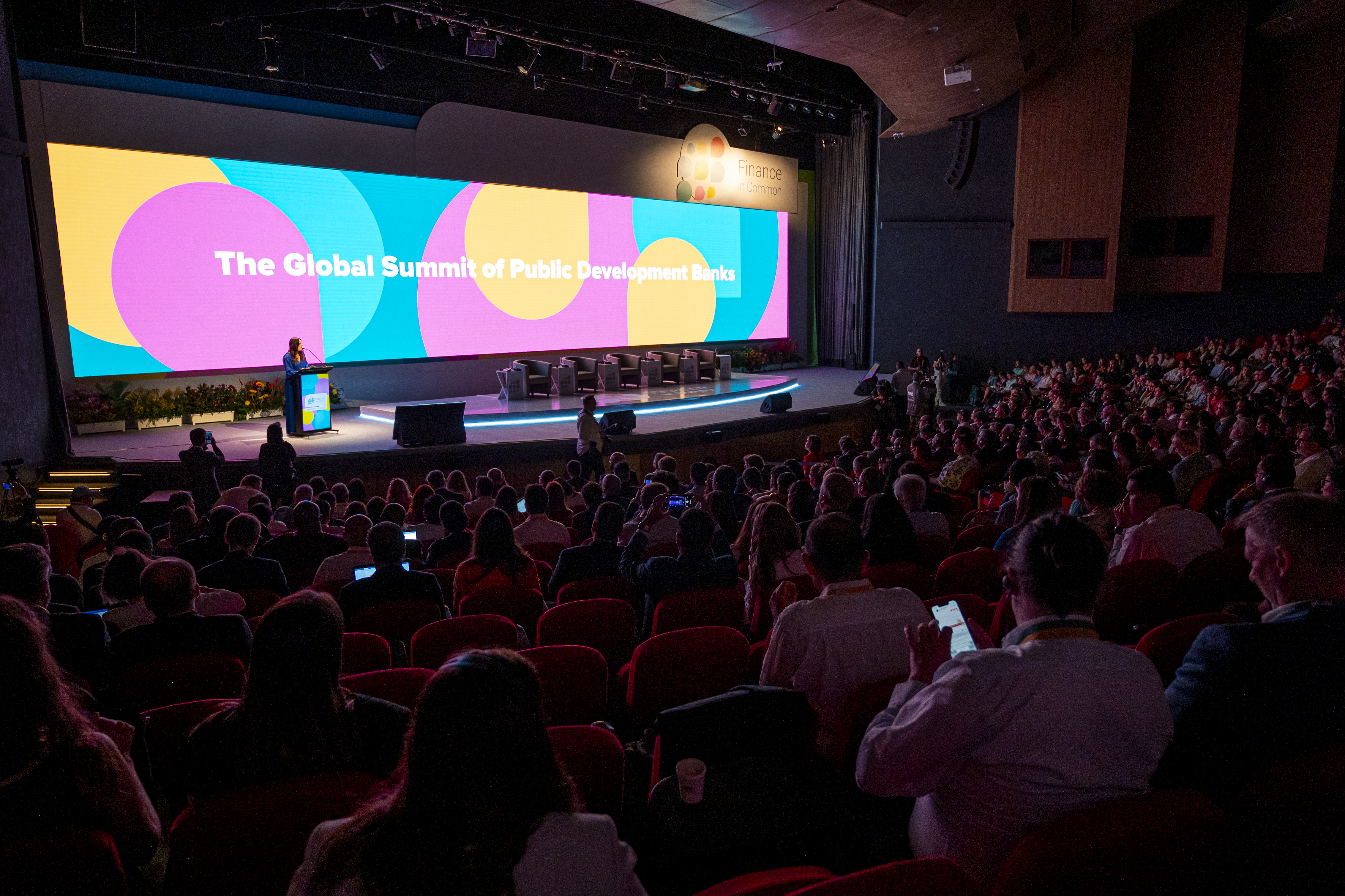
Stories of Impact: Bancoldex and its Diversity, Equity, and Inclusion (DEI) Policy
11 September 2025Each month, IDFC presents a concrete project from across its network in the series Stories of Impact: IDFC Members on the Ground, highlighting how development banks turn global commitments into real change for people and communities.
Our first episode features Bancóldex, Colombia’s Business Development Bank, and its Diversity, Equity, and Inclusion (DEI) Policy. By creating dedicated credit lines for women, youth, people with disabilities, ethnic minorities, and victims of conflict, Bancóldex has already directed more than USD 56 million over the past two years (2024–2025) to underrepresented entrepreneurs.
Discover more in the videos and interview below.
- What development issue was being tackled?
Bancoldex: Historically, certain populations have been identified as vulnerable and facing difficulties in accessing financing due to their ethnic, racial, or sexual origin. Bancóldex, as Colombia’s Business Development Bank, plays a crucial role in promoting diverse and inclusive economic growth that supports equal opportunities for all individuals who contribute to the country’s sustainable development from a business perspective.
For instance, reducing the gender gap in access to capital and representation in the financial system would result in significant job creation, increased productivity, and various other economic and societal improvements. In emerging markets, closing the credit gap for WSMEs would result in a 12 percent increase in annual incomes on average by 2030[1].
[1] WEOF 2024 Report.
- What specific financing or technical assistance did your institution provide?
Bancoldex: One of the key aspects of Bancóldex’s Diversity, Equity, and Inclusion (DEI) Policy is the inclusion of DEI products in the Bank’s product portfolio, which resources promote the development of productive activities for diverse populations prioritized in the Policy. The resources have been directed to companies led or owned by women, young entrepreneurs, senior citizens, people with disabilities, victims of the Colombian armed conflict, among others. These are the main lines that were in operation in 2024, and are still open until the date:
– Credit line “Inclusión Se Reactiva: Diversidad, Equidad e Inclusión 2024” (Inclusion Reactivates: Diversity, Equity and Inclusion 2024) was aimed at women, people with disabilities, young people, indigenous communities, and the Black, Afro-Colombian, Raizal, and Palenquero population, reaching total disbursements of COP $32.250 million (USD 7.8 million). This credit line was technically advised by the Chamber of Diversity, a private non-profit institution, which aims to consolidate opportunities for Economic Inclusion of vulnerable populations, promoting sustainable economic growth.
– Credit line “Asciende: Empresas de Víctimas del Conflicto Armado en Colombia 2024” (Enterprises of Armed Conflict Victims in Colombia 2024), with a quota of COP $615 million (USD 149.728). In this case, the ally that contributed with resources, as well as with knowledge and dialogue with the victim population, was the Unit of Attention and Integral Reparation to the Victims, in its role as the national entity in charge of supporting this population.
- What outcomes have been achieved so far?
Bancoldex: Between 2023 and 2024, Bancóldex has managed to disburse a total of COP $769.000 million (USD 190,09 million) to more than 98,000 women-owned businesses, and COP $270.000 million (USD 66,72 million) to more than 35.000 victim-owned businesses.
In 2024, a total of COP 116,265 million (USD 28,74 million) was disbursed through the special Diversity, Equity, and Inclusion lines. Of this amount, COP 94.846 million (USD 23.46 million) was disbursed to women entrepreneurs, COP 11.717 million (USD 2.90 million) to young people’s businesses, COP 1.702 million (USD 420.790) to businesses run by people with disabilities, and COP 8 million to other populations awaiting legalization.
In 2025, a total of COP 113.336 million (USD 28.02 million) was disbursed through the special Diversity, Equity, and Inclusion lines. Of this amount, COP 52.813 million (USD 13.06 million) was disbursed to women entrepreneurs, COP 37.427 million (USD 9.25 million) to young people’s businesses, COP 2.860 million (USD 709.100) to businesses run by people with disabilities, and COP 50 million (USD 12.361) to indigenous people.
- How does this project align with your mandate and the IDFC’s mission?
Bancoldex: Within the social welfare approach, Bancóldex designed the Diversity, Equity, and Inclusion (DEI) policy as a complement to the Sustainability Policy, considering the demographic changes experienced in recent decades in the management of the companies’ workforce, the demand for products and services by customers, and the new ways of interacting with local and global communities.
In this regard, the Bank recognizes that promoting the Diversity, Equity, and Inclusion (DEI) approach in its governance, culture, and internal processes, as well as in its product and service offerings, and in the management of environmental and social risks, is essential to fulfill its mission purpose of supporting the country’s productive transformation with an emphasis on MSMEs. In these terms, the DEI approach is consolidated as a key opportunity for the Bank based on three main reasons.
First, this approach helps to recognize and value the diversity that exists in the Colombian territory. Second, the principle of equity allows it to guide actions to close gaps and eliminate barriers that diverse populations face in their daily lives. Thirdly, inclusion is consolidated as a means for all people to lead them with equitable mechanisms for opportunities in the development of their companies, within the framework of fair, respectful, and inclusive treatment.
While Equality is a key factor to leverage sustainable and inclusive development in all countries, development banks have a unique role to play. This is something that the IDFC is very clear about within its strategic focus areas, which is why, in 2017, the members of the Club collectively decided to create the Gender Equality Working Group, in recognition of this social component of development that must be addressed.


